 | TODAY IN SCIENCE HISTORY NEWSLETTER - 28 SEPTEMBER |
| Feature for Today |
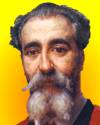 On 28 Sep 1852, Henri Moissan was born, who was awarded 1906 Nobel Prize for Chemistry for the isolation of an element (in the quiz below). On 28 Sep 1852, Henri Moissan was born, who was awarded 1906 Nobel Prize for Chemistry for the isolation of an element (in the quiz below).To read such a historic accomplishment of a scientist in his own the words always has a particular interest no biographer can offer. You can read Moissan's description of the isolation of this element in a translation of a lecture delivered to the Royal Institution (28 May 1897). |
| Book of the Day | |
| |
| Quotations for Today | |
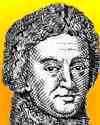 | "Might one not say that in the chance combination of nature's production, since only those endowed with certain relations of suitability could survive, it is no cause for wonder that this suitability is found in all species that exist today? Chance, one might say, produced an innumerable multitude of individuals; a small number turned out to be constructed in such fashion that the parts of the animal could satisfy its needs; in another, infinitely greater number, there was neither suitability nor order: all of the later have perished; animals without a mouth could not live, others lacking organs for reproduction could not perpetuate themselves: the only ones to have remained are those in which were found order and suitability; and these species, which we see today, are only the smallest part of what blind fate produced." (1756) |
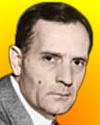 | "The history of astronomy is a history of receding horizons." |
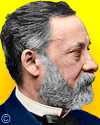 | "Descriptive anatomy is to physiology what geography is to history." |
| QUIZ | |
| Before you look at today's web page, see if you can answer some of these questions about the events that happened on this day. Some of the names are very familiar. Others will likely stump you. Tickle your curiosity with these questions, then check your answers on today's web page. | |
| Births | |
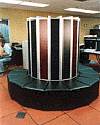 |  An American electronics engineer, born 28 Sep 1925, pioneered the use of transistors in computers and later developed massive supercomputers to run business and government information networks. He was the preeminent designer of the large, high-speed computers known as supercomputers. An American electronics engineer, born 28 Sep 1925, pioneered the use of transistors in computers and later developed massive supercomputers to run business and government information networks. He was the preeminent designer of the large, high-speed computers known as supercomputers.  Can you name this man? Can you name this man? |
 |  Henri Moissan, born 28 Sep 1852, was a French chemist who received the 1906 Nobel Prize for Chemistry for the isolation of a certain highly reactive element, and the development of the Moissan electric furnace. Henri Moissan, born 28 Sep 1852, was a French chemist who received the 1906 Nobel Prize for Chemistry for the isolation of a certain highly reactive element, and the development of the Moissan electric furnace.  What was the element he isolated and studied? What was the element he isolated and studied? |
| Deaths | |
 |  An American astronomer (1889-1953) is considered the founder of extragalactic astronomy and provided the first evidence of the expansion of the universe. His name is now remembered by the telescope named for him. An American astronomer (1889-1953) is considered the founder of extragalactic astronomy and provided the first evidence of the expansion of the universe. His name is now remembered by the telescope named for him.  Can you name this astronomer? Can you name this astronomer? |
| Events | |
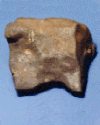 |  On 28 Sep 1969, a meteorite fell over Murchison, Australia of which only 100-kg of it have been found. An abundance of a certain type of chemical compounds found within this meteorite has led to intense study by researchers as to its origins. More than 92 such compounds have been identified within the Murchison meteorite to date. Nineteen of these are found on Earth. The remaining such compounds have no apparent terrestrial source. On 28 Sep 1969, a meteorite fell over Murchison, Australia of which only 100-kg of it have been found. An abundance of a certain type of chemical compounds found within this meteorite has led to intense study by researchers as to its origins. More than 92 such compounds have been identified within the Murchison meteorite to date. Nineteen of these are found on Earth. The remaining such compounds have no apparent terrestrial source.  What type of chemical compounds are these? What type of chemical compounds are these? |
| Answers |
When you have your answers ready to all the questions above, you'll find all the information to check them, and more, on the September 28 web page of Today in Science History. Or, try this link first for just the brief answers. Fast answers for the previous newsletter for September 27: the decade including the year 1978; synthesis of an organic compound from inorganic materials; the study of the origin, composition, structure, and alteration of rocks (and has nothing to do with petroleum except the word stem "petr-" meaning rock when it is paired with "oleum" meaning oil); the decade including the year 1922; S.S. Arctic. |
| Feedback |
 If you enjoy this newsletter, the website, or wish to offer encouragement or ideas, please send feedback by using your mail reader Reply button. If you enjoy this newsletter, the website, or wish to offer encouragement or ideas, please send feedback by using your mail reader Reply button. |
--
If you do not want to receive any more newsletters, this link
To update your preferences and to unsubscribe visit this link
If you do not want to receive any more newsletters, this link
To update your preferences and to unsubscribe visit this link
! !



Δεν υπάρχουν σχόλια:
Δημοσίευση σχολίου